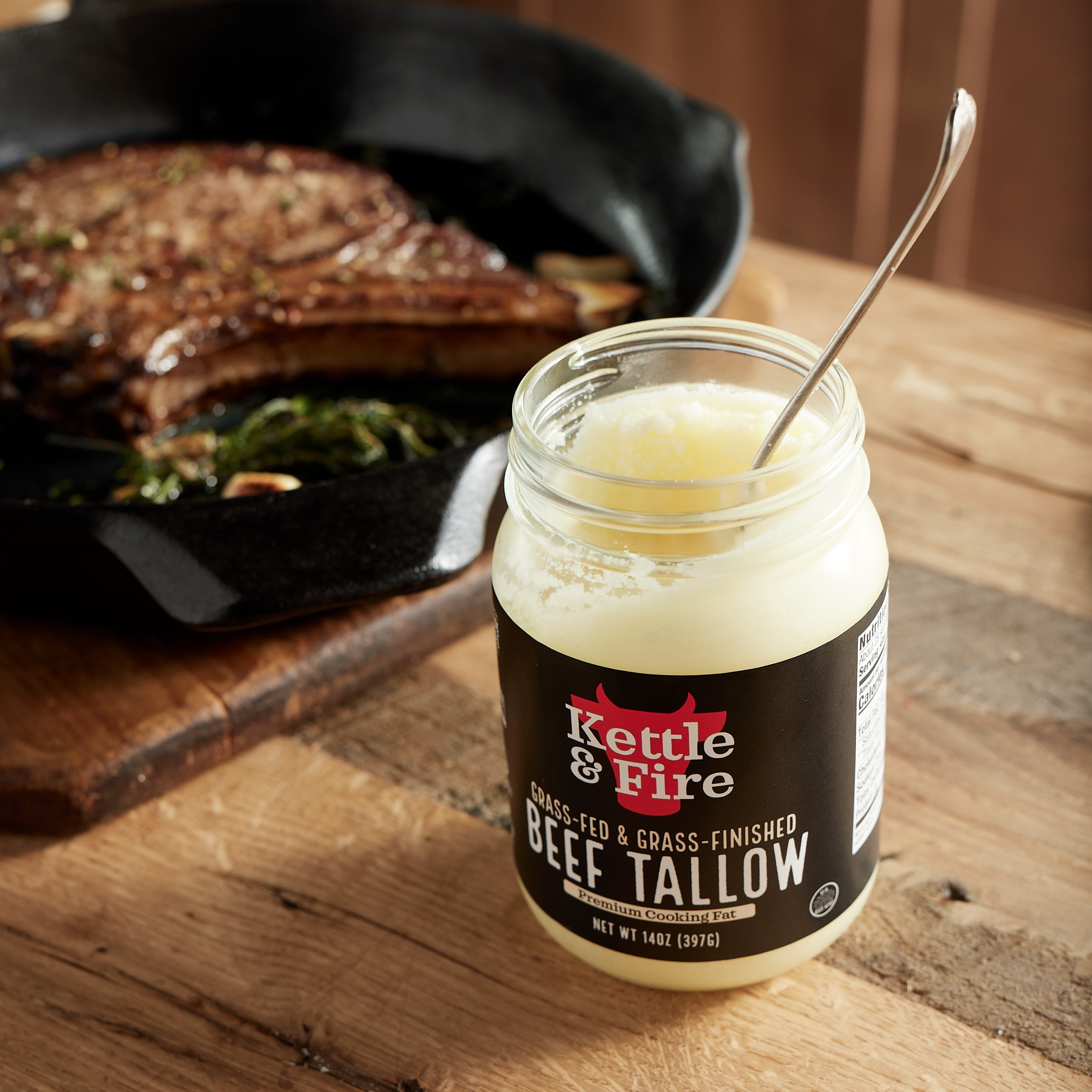
The Truth About Collagen: 5 Facts & 2 Myths
Fact #1: Collagen is kind of a big deal.
Simply put, collagen is the most abundant protein in our bodies and is made naturally when proteins are broken down into amino acids, which then help build other proteins in the body.
That “youthful glow” everyone always talks about? That is collagen's main job! It gets all the credit for skin elasticity, hydration, strength, and suppleness.
Fact #2: Collagen is crucial for aging gracefully.
As we age, collagen production begins to decrease. As a result, our skin becomes thinner, drier, and less elastic, resulting in wrinkle formation and the appearance of lines.
We also begin to see effects of collagen depletion in other parts of the body:
- Bones become weaker and more fragile.
- Joints become less lubricated, making it tough to stay active.
- Muscle function decreases, affecting mobility and balance.
Fact #3: The best way to get more collagen is straight from the source.
While collagen replacements come in many forms, not all are created equally. The richest sources come from bone, skin, joint material, and certain organs.
Eating a balanced diet of protein-rich foods (like chicken, fish, beef, eggs, dairy, legumes, nuts and whole grains) and a variety of fresh produce can help reduce the effects of collagen loss.
And, as you'll see in Myth #1, whole foods are known to be a superior source of collagen over processed powders or other products.
Fact #4: Collagen boasts more benefits than just beauty.
While collagen replacements come in many forms, not all are created equally. The richest sources come from bone, skin, joint material, and certain organs
- Strengthening bones & ligaments, lubricating joints, and supporting muscle function.
- Gut health: Improving the lining of our digestive system, as well as connective tissue.
In addition to supporting skin, hair, and nail health, collagen provides lubrication for the joints and helps to improve muscle function, thereby reducing risks associated with physical activity. It also helps strengthen bones. (Pro-tip: getting more calcium alone isn't the secret to bone health…it's the combo of calcium and collagen that REALLY gets the job done.)
The most surprising benefit, however, is that collagen can help protect the body from bad bacteria by improving the lining of the digestive system. This can help counter inflammatory responses within the body and has positive effects on the immune system as well!
Fact #5: Bone broth is an excellent source of collagen.
Any foods that help create the building blocks you need for optimal skin health (amino acids like proline, lysine, and glycine) are beneficial for a natural beauty routine.
Bone broths – especially those made with high-quality ingredients and cooked slowly for a long period of time to extract collagen – are exceptional in this department, since they not only contain crucial amino acids, but also calcium, magnesium, phosphorus, glucosamine, chondroitin, and many other nutrients.
Plus, bone broth comes in a bioavailable form – meaning the body can make use of it easily and right away.
Myth #1: Serums and supplements are good enough to replace depleted collagen.
Despite what the beauty industry will tell you, these are some of the least effective options – and therefore our least-recommended. Processed powders and potions just don't work as well.
Lotions and creams only provide a barrier to the outer layers of skin, as their molecules can be too big to reach the inner layers (where collagen resides). While they may make you feel radiant for a short time, they're not doing much for inner beauty, which is at the core of collagen replacement.
Injectable serums come with their own set of risks, too. They can be painful, expensive, and are a temporary band-aid for collagen production.
Capsules or containers that contain hydrolyzed collagen - aka collagen peptides – are also risky. The processes by which these forms of collagen are made can compromise the integrity of pure collagen, and can therefore diminish the effects. Not only that, but the amount of collagen in each serving can be far less than the amount in a whole food source like bone broth.
Myth #2: It's too late for me to start replacing collagen production.
It's never too late to start a wellness journey
(Let's say it again, all together now: It's NEVER too late to start a wellness journey.)
Although collagen production begins to decline in our twenties and thirties, there isn't a deadline to begin getting as much of it back as you can!
And the best way to start is by getting the best bone broth, made by us.























